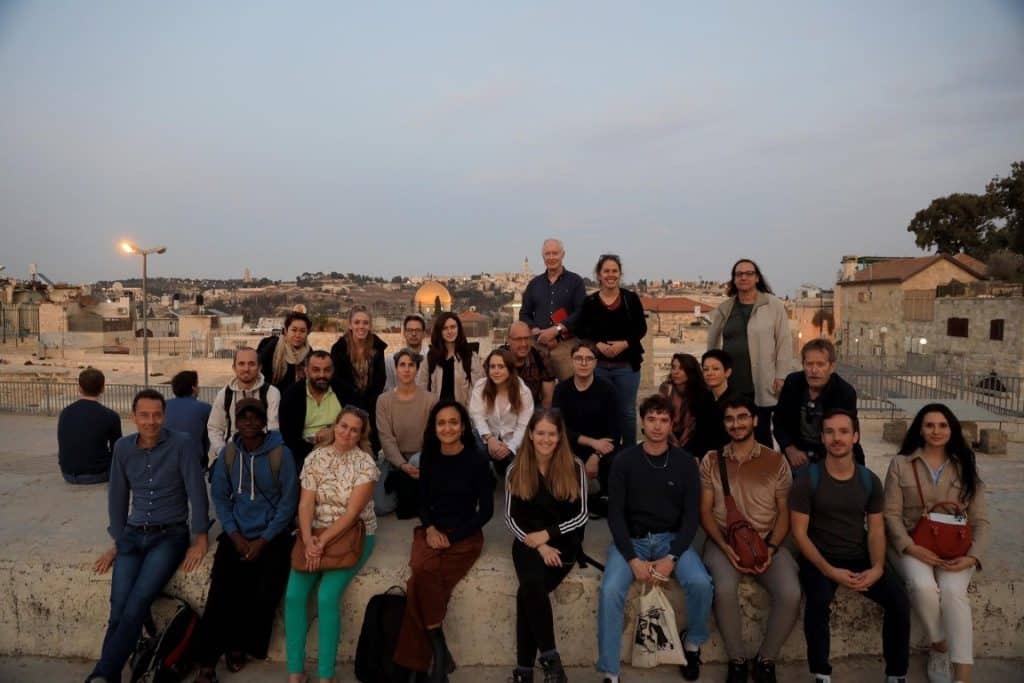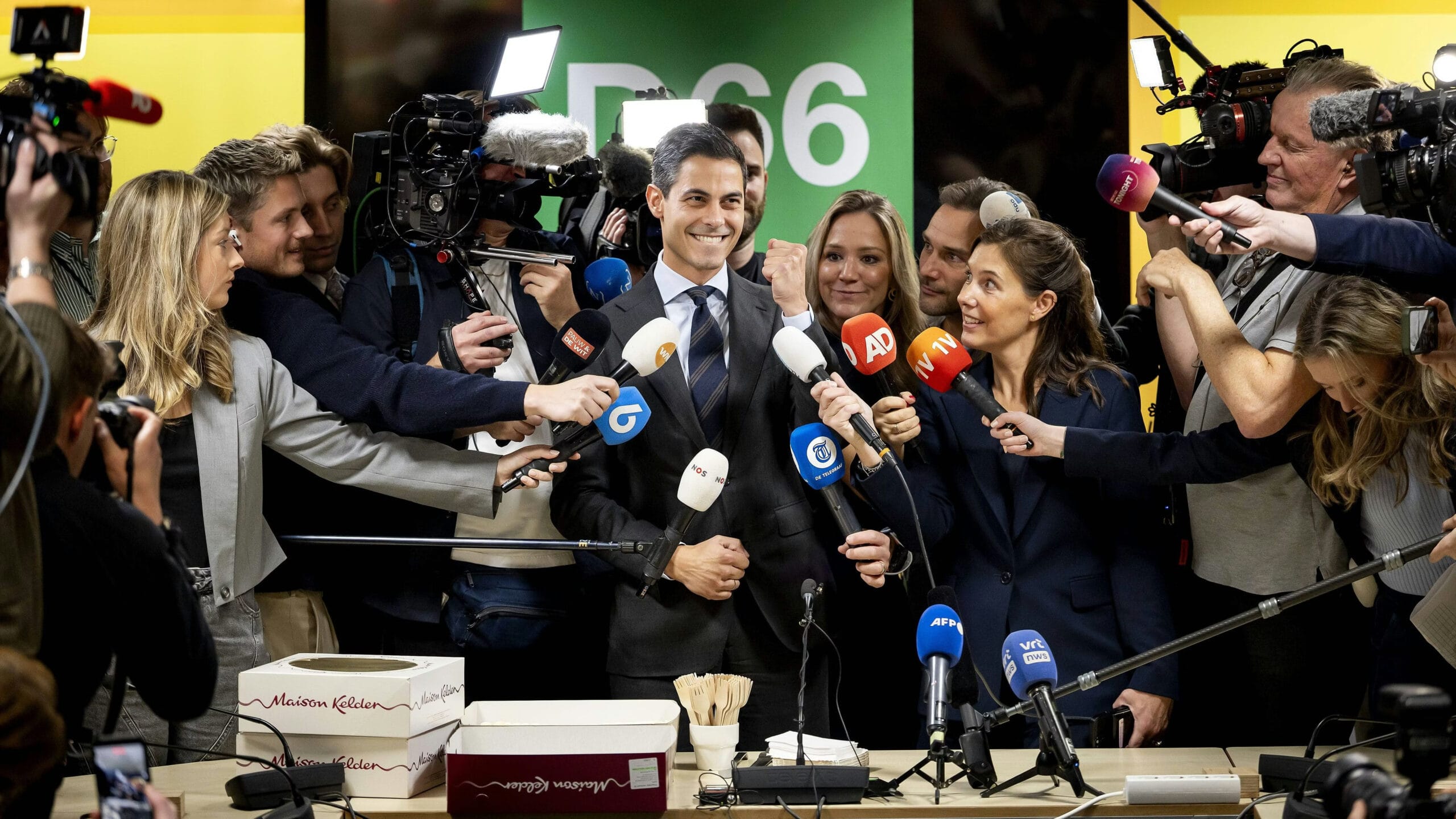Colleague Meriem Hammami visited the Palestinian territories in November during a three-day fieldtrip organised by the Palestinian-European Civil Society Forum and the Jerusalem Human Rights Consortium. During the fieldtrip, she experienced poignant moments. FMS interviewed her about the experiences that stuck with her most.
What was the background to your trip to the Palestinian territories?
I always wanted to visit the Palestinian territories, especially to learn more about the occupation. So when I got the invitation for this trip, I didn't have to think long whether I wanted to go.
Which experiences have stayed with you most strongly?
One of the experiences I remember well was our visit to Hebron. Hebron is a Palestinian city in the Palestinian territories. In the middle of the city's former economic centre, a settlement has been built by settlers. These are Israeli settlers building illegal settlements on Palestinian land.
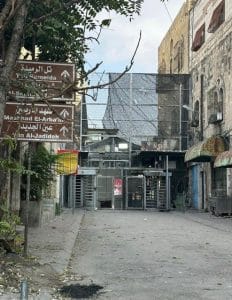
I found it very intense to hear that Palestinians are quite terrorised by the settlers. The settlers' houses overlook the Palestinians' market. They throw down junk that comes down on the market. Not just junk, but urine, faeces and toxins. This is why the Palestinians have closed the market with fences and cloths to defend themselves.
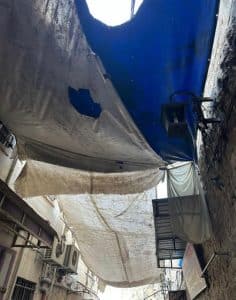
We were partly allowed into the settlement, just to look around. From a certain border, you were only allowed to continue if you were not Muslim and did not have an Arab background. As a result, part of the group, including myself, could not continue. Then we decided to go back as a whole group. I found that a moving experience. You already experience Palestinian injustice from very close quarters. It comes in twice as hard when you experience it yourself.
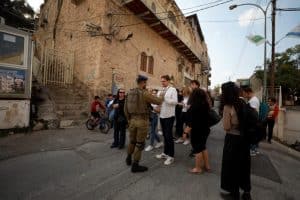
Did you also visit other places?
Yes, I also visited Masafer Yatta. That is a collective name for 19 Palestinian villages in the Palestinian territories. You saw there how, step by step, the Palestinian territories are being taken over by Israeli settlements.
Settlements start small. The settlers build an illegal lookout or they grab a piece of fallow land. A group of settlers, protected by the Israeli army. At first, they stay in caravans while the settlement is being built. Sometimes they build an entire city. These settlements are illegal under international law.
I spoke to Palestinians there who told how they are harassed by the settlers. They are scolded, spat on, beaten up, and, in the worst case, killed. I found it very emotional to hear that.
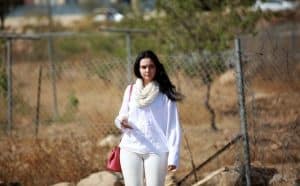
Settlers who do so are almost never held accountable. While Palestinians are often severely punished for self-defence.
How is it that Israeli settlers can just settle in Palestinian territory?
Masafer Yatta, together with 60% of the West Bank, falls under the so-called administrative area Area C. The West Bank is subdivided various degrees of administrative control, called Area A, B and C. Areas in Area C are almost entirely under Israeli administrative control.

In practice, this means that Israel determines what happens in these areas. For example, Israel regularly demolishes Palestinian buildings and facilities in the hope that people will leave and the settlements can be expanded. Israel's explanation is that these constructions have never been approved by the authorities.
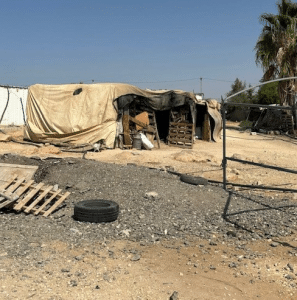
However, the fact is that Palestinians almost never get approval to build. While Palestinians obviously need these constructions to remain viable. This is a big problem.
After these experiences, are you hopeful for a solution to the Israeli Palestinian conflict?
I see two main factors in this: politics and public opinion. I am quite pessimistic about the political approach to the conflict. For decades, Israel has had a free pass to do as it pleases. At best, a Western government says it is "concerned". That is of little use to a Palestinian whose house has just been demolished.
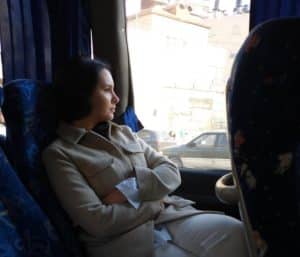
At the same time, I think public opinion in the West is changing. In recent years, sympathy for Palestinians has slowly increased. I think this has to do with the fact that social media allows Palestinians themselves to share their experiences with the outside world. In traditional media, the Israeli perspective has always dominated reporting, in my opinion.
So I am hopeful about public opinion. Hopefully, it will ultimately influence the political approach to the conflict.
How do you express your ideas about conflict in your work at the FMS?
The FMS has several news platforms on which we discuss the conflict. In these, we are honest and as unbiased as possible. We also sometimes have Palestinian idealistic youth participating in our regional trainings. They are committed to the democratisation process in their country. I would consider it a great goal for the future to have a direct Palestinian partner organisation, with which we can organise trainings bilaterally.
Photo credits belong to Palestinian-European Civil Society Forum and Meriem Hammami

